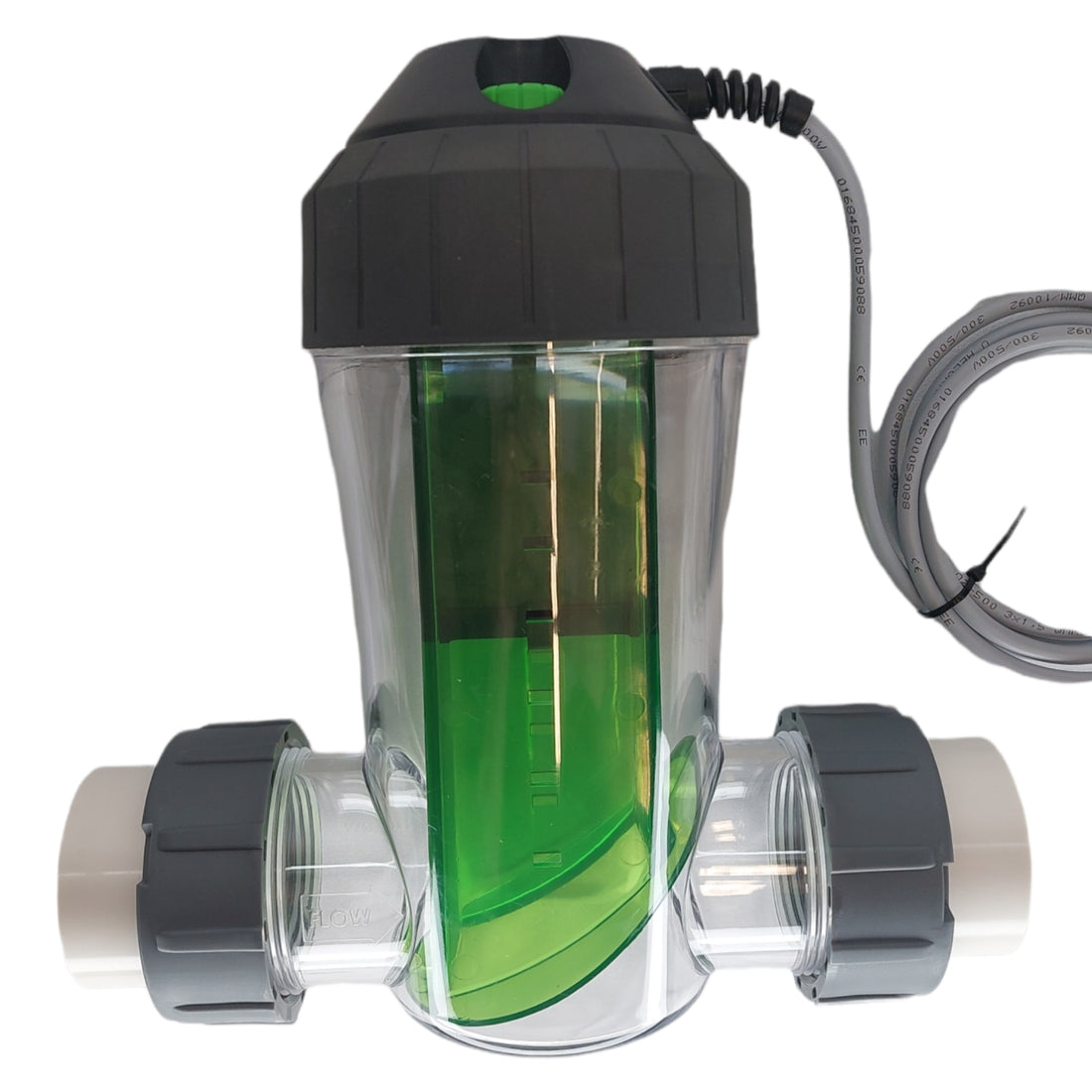Understanding Salt Chlorinator Production
Pool ownership can be a tricky and time-consuming business, without the proper equipment in good working condition. However, with the proper equipment in good working condition pool ownership is a breeze.
Keeping Your Swimming Pool Water Healthy
Keeping your water clean and healthy is critical for it to be a functional, inviting pool, and not a mosquito breeding pit. For the water in your pool to be healthy it must be moving, just like a running stream stays healthy, but a stagnant pond turns green and sick quickly.
If you are having issues with water flow, check out our article on the impotence of good water flow and pump troubleshooting.
Why Invest in a Variable Speed Swimming Pool Pump?
Salt Chlorinators
Although there are many methods for sanitising a pool, almost all of them use chlorine as either their primary or secondary sanitiser. A salt pool for example, is still a chlorine pool but your salt chlorinator cleverly makes the chlorine for you, right there in your swimming pool, dramatically reducing the daily maintenance of pool ownership. A premium pool chlorinator further reduces your weekly maintenance, by producing the correct amount of chlorine, right there in your swimming pool, but only as it needs it. Adding an acid feeder to that combination and now you're further reducing your weekly maintenance tasks to monthly (or better). Although regular maintenance tasks may be dramatically reduced, do not neglect checking your chemistry levels regularly, because a fault in your equipment can have a rapid and potentially significant impact on the health of your pool water, equipment and wallet.
Once upon a time, back when my dad owned a swimming pool, daily chlorine dosing and at least weekly water testing, was what it meant to be a pool owner. Handling dangerous chemicals splashed in to the pool every day and down on your hands and knees twice a week with chemistry breakers, dripping in reagents to read off a coloured scale chart. Then some mathematics to calculate correct dosages to rebalance the water. Then salt chlorinators came along, reducing the daily maintenance to weekly. Many years later probes were added, allowing automation and eventually remote testing, so that today, modern pool ownership can become no more complicated than checking your phone and emptying a few debris baskets.
HOW A SALT CHLORINATOR WORKS
A salt chlorinator is an incredibly clever piece of equipment and a significant advancement for the simplification and maintenance of pool ownership. Capable of producing chlorine from salt without you ever having to touch it. For anyone who has handled liquid chlorine before, you will know exactly how potent, dangerous and corrosive it is (and how heavy a container it comes in), thus how significant this advancement is.
To produce the chlorine, an electrical current is passed between metal plates coated in ...If there is a high enough salt content level in the water, a chemical reaction then occurs resulting in the production of a chlorine gas. This gas can be seen as a white cloud at the end of the clear chlorine cell.
Maintaining a good chlorine level (not too high or too low), will ensure that your pool water is safe and healthy for swimming. A salt chlorinator can help you achieve this with ease, as it continuously produces chlorine based on the salt content in your pool water. The chlorine produced by a salt chlorinator is not as potent or dangerous as liquid chlorine, making it easier and safer to handle. In addition, salt chlorinators also allow for automation and remote testing, making pool ownership much simpler and hassle-free.
It's important to remember that while a salt chlorinator can greatly reduce your weekly maintenance tasks, you still need to regularly check your pool's chemistry levels to ensure that everything is working properly. Neglecting to do so can have a rapid and significant impact on the health of your pool water.
If you're looking to simplify your pool ownership experience, a salt chlorinator is a great investment. With its ability to produce chlorine automatically, it can help you keep your pool water clean and healthy with minimal effort. However, it's still important to regularly check your pool's chemistry levels to ensure that everything is working as it should.
Additional Support Articles
Standard Entry Level Chlorinators VS. Premium Automation Chlorinators
How to automate acid dosing and reduce your weekly swimming pool maintenance tasks.

